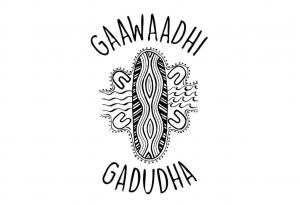The Gaawaadhi Gadudha Study: Understanding how cultural resilience impacts Aboriginal health and quality of life

Project Status
Current
Chief investigators
Dr. Aryati Yashadhana, , Prof. Evelyne de Leeuw , Dr. Brett Biles , Dr. Jonathan ‘Yotti’ Kingsley (Swinburne University), Mr. Ted Fields , Ms. Wendy Jopson , Prof. Anthony Zwi , Dr. Margaret Raven , Darren Green, A/Prof. Stephanie Topp (James Cook University)
Associate Investigators
Dr. Patrick Harris (CHETRE), Dr. Brooke Brady (NeuRA)
Cultural Governance Committee
Mr. Ted Fields (Gamilaraay/Yuwalaraay Nation), Ms Shelly O’Leary (Gamilaraay Nation), Mr Odee Welsh (Yuwaalaraay Nation), Uncle Warren Foster (Yuin Nation), Sharon Mason (Yuin Nation), Wendy Jopson (Yuin Nation), Garruu George Fernando (Yuwaalaraay Elder)
Project Rationale
The project was conceived from an existing collaboration with Yuwaalaraay, Yuin, and Gamilaraay traditional knowledge holders, who wanted to obtain evidence on how existing walaays and cultural work were impacting their people, and use this evidence to create shared pathways with health services in their respective regions. The name Gaawaadhi Gadudha is a combination of Gamilaraay and Yuin words that translates to ‘from the river to the ocean’ and represents the alliance and shared culture between the two nations, which is also reflected in the study’s logo artwork.
Project Aim/s
The project aims to develop a model of cultural health that demonstrates how existing walaays (cultural gatherings on sacred sites) impact community and individual wellbeing; and how they can be better linked with regional health systems to improve health outcomes for Aboriginal peoples in the Western and South Coast regions of NSW.
Project Design and Method
The project follows a cultural governance ethical framework that places decision-making with traditional knowledge holders based at the study sites, including several members of the CI team. The study is taking a mixed-methods pre-post design using the walaays as interventions; several psychometric scales to measure resilience, health, and quality of life; and yarning circles to explore walaay participant experiences. As a result, a model of cultural health will be drafted collaboratively by the team, and workshopped with partnering Aboriginal Community Controlled Health Services. Additionally, feedback on the model from policymakers and key informants will be obtained using a two-round Delphi survey.
Publications
- Biles B., Jopson, W., Fields, T., Topp, S., Yashadhana, A., (2022) Aboriginal cultural governance of health research, 24th IUHPE World Conference on Health Promotion, 15-19 May, Montreal Canada.

